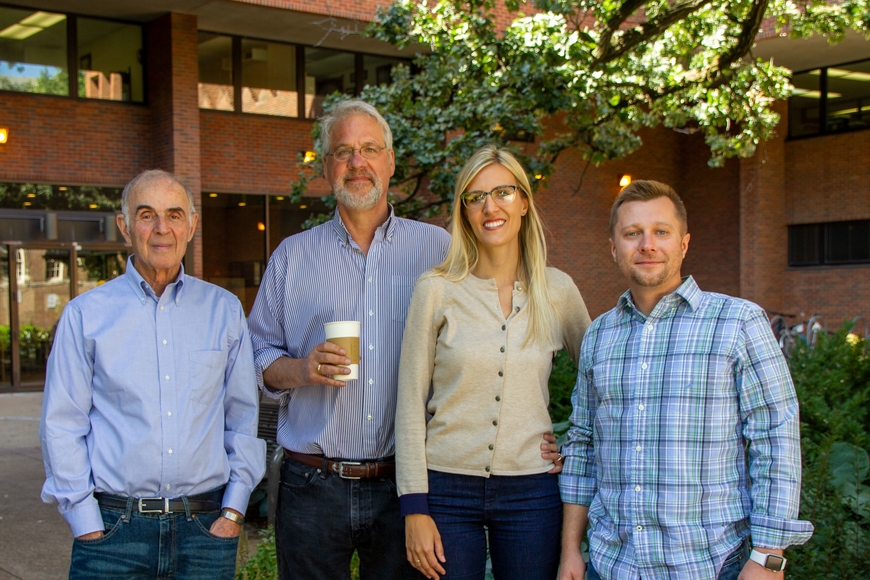Quantitative/Psychometric Methods (QPM)

Left to right: David J. Weiss, Niels G. Waller, Katerina M. Marcoulides, Nate Helwig
An international leader in applications and theory of psychological measurement, the Quantitative/Psychometric Methods program brings together the talents of program and affiliated faculty. You can specialize in one or more areas of psychometrics, including multivariate methodology such as:
- factor analysis
- structural equation modeling
- item response theory
- computerized adaptive testing
- multi-way data analysis
- nonparametric methods
You are encouraged to conduct research with more than one faculty member over your course of study. Affiliated faculty interests include methodological and substantive problems in cognitive measurement (including the measurement of abilities, aptitude, and achievement), psychopathology, personality measurement, and the measurement of preferences.
In our admissions process, we look for quantitative interests and skills as well as some understanding of basic methods, techniques, and approaches to psychological research. We do not require a mathematics major or minor for admission, but you should appreciate the usefulness of mathematical methods as a tool in psychology. Course work in calculus, linear algebra, and statistics are also helpful. We also favorably regard undergraduate training in symbolic logic, the philosophy of science, the study of tests and measurements, and psychological research.
Research
The QPM program will prepare you for research, teaching, and technical careers. You will learn research skills that will help you develop innovative solutions to problems in psychological measurement and the analysis of psychological change. Our program covers problems of translating psychological observations into numerical form by developing psychological measurement instruments and by developing new methods for scaling psychological data, investigating the reliability and validity of psychological data, and analyzing psychometric data using a variety of modeling approaches. We also maintain a close collaboration with the School of Statistics, and many of our students acquire an MS in statistics while enrolled in the program. The QPM program does not accept students for a terminal MA.
Curriculum
Please visit the Graduate Education Catalog: Psychology for curriculum requirements specific to the QPM program.
You will often work with faculty from other areas and take courses offered through:
- Psychological Foundations of Education, including work in:
- applied statistics
- experimental design
- correlational methods
- advanced test theory
- psychological scaling
- the Departments of Applied and Theoretical Statistics,
- the School of Mathematics
- the Department of Computer Science
Depending on your goals, you may take courses in philosophy, biostatistics, sociology, child development, or other fields.
In recent years, all students in the QPM have enrolled in the master's program of the University of Minnesota School of Statistics. Faculty in QPM and the School of Statistics work closely with one another to provide a solid foundation in statistical theory. Some faculty hold joint appointments in both programs.
Funding Opportunities
The Department of Psychology offers a variety of funding opportunities to graduate students -- including assistantships, fellowships, and a training program supported by a T32 grant from the National Institutes of Health.
For more information, please see the Funding Opportunities webpage or the page on the Training Grant.
Core Faculty
Niels G. Waller, Professor and Area Director
David J. Weiss, Professor
Nate Helwig, Associate Professor
Katerina M. Marcoulides, Associate Professor
Associated Faculty
Matthew McGue, Professor